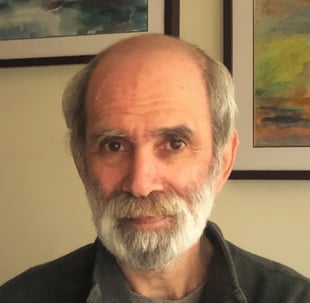

ANIMAFEST SCANNER X | SYMPOSIUM FOR CONTEMPORARY ANIMATION STUDIES | PANEL 4 – SCI-FI IN ANIMATION
WARNING SHOTS: REVERBERATING SCI-FI TROPES IN THE FILMS OF THE 1970-80s Mikhail Gurevich (Independent Scholar, USA)
PANEL 4 – SCI-FI IN ANIMATION
Theatre &TD
07/06 WED 15:35-16:05
In this day and age one can hardly escape the burning agenda of the present; and the weight of dramatic history-in-the-making, in my mind, informs even a retrospective conceptualization of certain facts and traits in animation history. One of the hypostases of the sci-fi genre at large, bordering science fantasy and other hybrid forms, is, obviously, a social parabola of different varieties; utopian/dystopian modeling; a ‘future-fromthe-past’ matrix. This kind of ‘semantic train’ relates also to the use of particular sci-fi elements and devices that penetrates a diverse body of artistic creations. In this light, I’m looking at some not quite conventional films of the 1970s-80s, from Western canon proper and national schools/traditions of the Soviet realm – where the sci-fi premise or general assumption would develop into metaphors of deeper reach and even prophetic vision. This ranges from ‘mysterious gas’ and its weirdly terrible effects in Raoul Servais’ classic Operation X-70 (1971); to ‘smart tank’ as a revenge-justice vehicle in Polygon (Russia/USSR, 1977); to space blaster, transforming the executioner into the victim on another planet in The Lesson (Armenia/USSR, 1987); then there are tech-fantasy-aided war games going rogue, in The Last Combat (Ukraine/USSR, 1989); up to the nuclear catastrophe, in Stephen King and Ray Bradbury adaptations, The Battle (Ukraine/USSR, 1986) and There Will Come Soft Rains (Uzbekistan/USSR, 1984); and to full-blown apocalyptic picture of how this mad-mad-mad world ends in Wind (Armenia/ USSR, 1988). Many moves, twists, and imagery here, as though unintentionally futurologic, look strikingly relevant today, sometimes rhyming immediately with daily agenda. At the same time, they strongly hint at certain tensions and anxieties behind the specific artistic choices; and arguably, also at ideological chasms, hidden or dormant until the time is ripe, to surface in force later – thus throwing perhaps new light on what is underlying the current issues.
Mikhail Gurevich (Chicago) is an independent scholar and critic, born in Moscow, Russia. Writes about literature, theater and film, focusing on animation, puppetry and experimental theatre and cinema. Since the late 1970s, has been contributing to major cultural publications in Russia; later edited independent periodicals. Served as expert-consultant for professional associations and institutions in theatre and cinema; as board member and adviser at film/animation studios. From 1992 lives in USA. Wrote on animation in particular for professional and academic publications. Was a guest lecturer at a number of universities internationally. Participated at many festivals in various capacities; program director at Blow-up International Film Festival. Also involved in broader cultural studies and journalism, and in documentary film-making.


